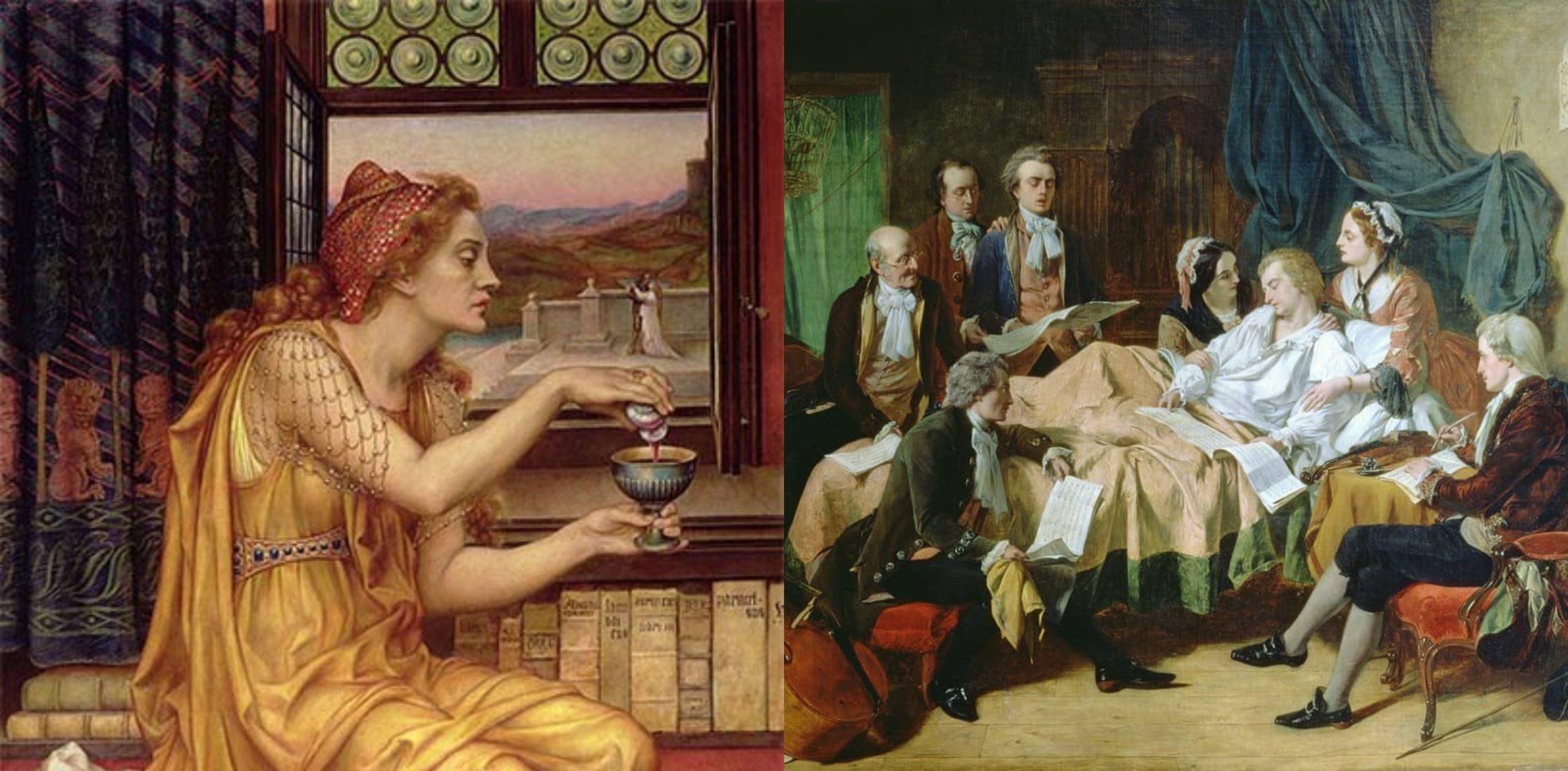Giulia Tofana, a 17th-century businesswoman that sold her signature concoction, disguised as a cosmetic product, to women who intend to kill their husbands.
At the time of her arrest, she had confessed to a total of 600 deaths, making her the most prolific assassins in history.
During the time of her business bloom, Tofana’s product was merely a product of women.
Italy during the 17th-century had classified women as ‘properties,’ stripping them away from receiving basic rights like the power to stand up against men, resulting in most of the women there had to stay inside abusive marriages. These women will not be provided money or social recognition unless they get married, work as sex slaves or become a widow.
Luckily, the third option was made possible with ‘Aqua Tofana.’
Although not a lot is known about Giulia Tofana, it is believed that her mother, Thofania d’Amado, was arrested and executed in 1633 for the murder of her husband, which also, was by poisoning.
Following her mother’s footsteps as a widow later on, along with her daughter, Girolama Spara, she moved to Naples and then Rome to sell her lethal concoction to women.
Tofana had gained her reputation as a friend to troubled women, where they would also help her distribute and sell her disguised poison. Father Girolamo, a local Roman priest, was also suspected to be a part of their criminal network.
Girolamo was believed to have supplied them the arsenic for the poison, where Tofana and her allies would disguise them as a beauty product called “Manna of St Nicholas of Bari,” where everyone knew of it as “Aqua Tofana,” a covetable face cream or oil for women, that acts as a healing oil for blemishes, looking to be single again.
Guilia Tofana disguised her poison in a cosmetic packaging, which is in a small glass bottle that has the image of Saint Nicholas on the front – the shape and size blending perfectly behind one’s vanity.
Aqua Tofana is powerfully lethal once consumed – it’s tasteless, colorless concoction could kill a man with around four to six drops.
The terrifying thing is, it is undetectable even after death.
The poison can kill their victim over days, and could even pass as a disease. The first doses, given as a form of liquid, would induce fatigue, while the second would deliver symptoms like stomach aches and vomiting. This gave time for the women to plan their husbands’ demise, and where he would make amends that would cater to their wives after they die.
The third or fourth doses would be given on the next days, where the woman is sure to make their husbands meet their fate.
As Chambers’s Journal wrote in 1890 of the poison:
“To save her fair fame, the wife would demand a post-mortem examination. Result, nothing — except that the woman was able to pose as a slandered innocent, and then it would be remembered that her husband died without either pain, inflammation, fever, or spasms. If, after this, the woman within a year or two formed a new connection, nobody could blame her.”
Tofana’s business managed to fool the authorities for decades, until the incident of the soup rises and led to her execution, along with her daughter and three of her helpers.
In 1650, a woman laced her soup with a drop of Aqua Tofana to give to her husband – but had a change of heart halfway.
The man forced information out of her, where she had confessed to having poisoned the food with Giulia Tofana’s Aqua Tofana.
Tofana managed to flee before the authorities could catch her, residing at a local church that promised her protection. Although, suspicion grew that she had poisoned the water supply, where the church was stormed and Giulia Tofana was captured.
Tortured, Tofana confessed to having killed around 600 men with her poison in a period of 20 years.
Tofana was ultimately executed in Campo de’ Fiori in Rome in 1659 alongside her daughter and three of her helpers. Additionally, over 40 of Tofana’s lower-class customers were also executed while women of the upper class were either imprisoned or escaped punishment altogether by insisting that they never knew their “cosmetics” were actually poison.
It is suspected that she used a combination of arsenic, lead, and belladonna, widely used in the 17th century in cosmetics.
Because of this, belladonna has become synonymous with the word “beautiful woman,” while “deadly nightshade,” a suitable pseudonym for the instruments of a femme fatale, became a more appropriate nickname.
Source: All That Is Interesting, Let Me Know









Leave a Comment